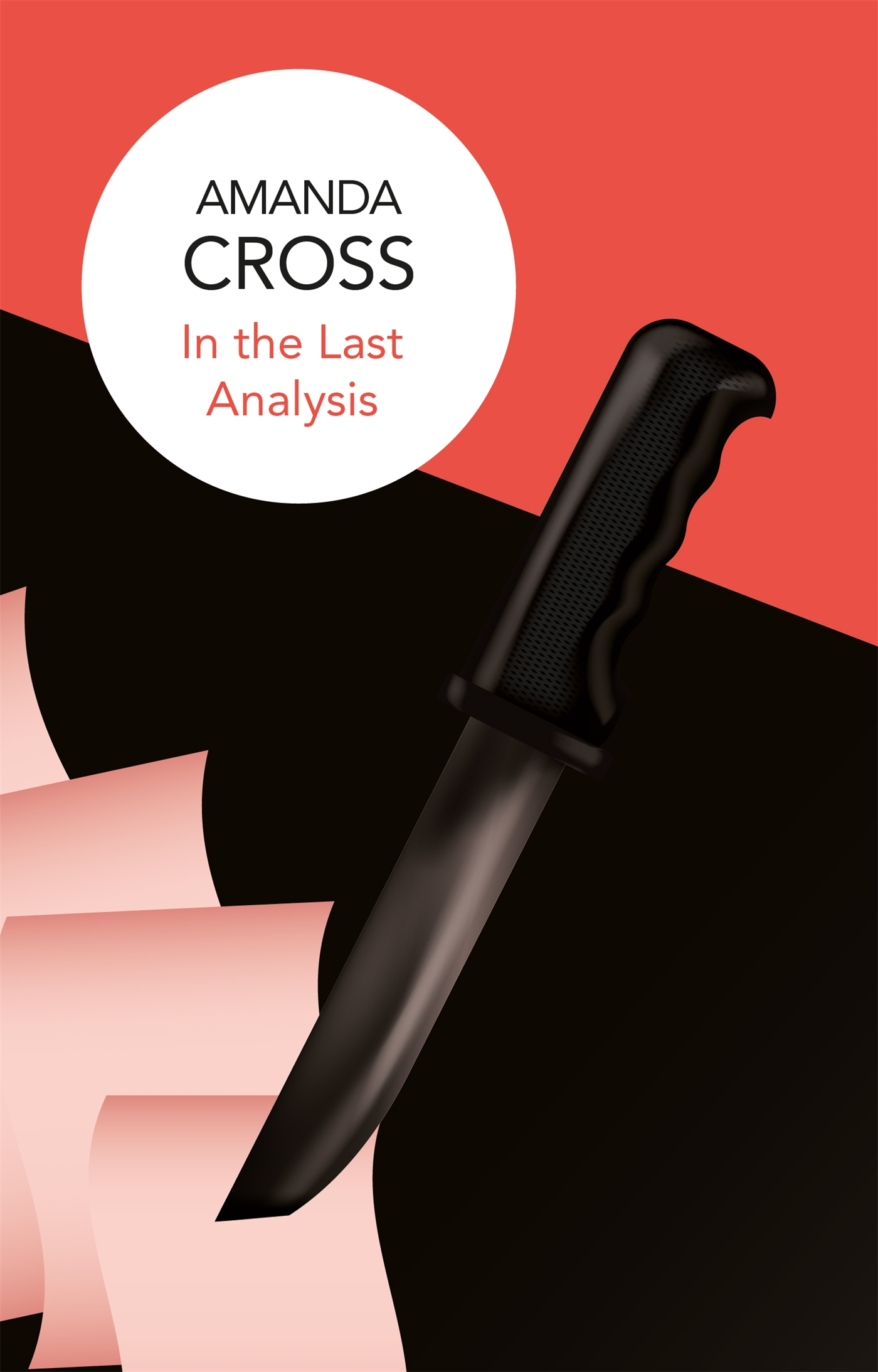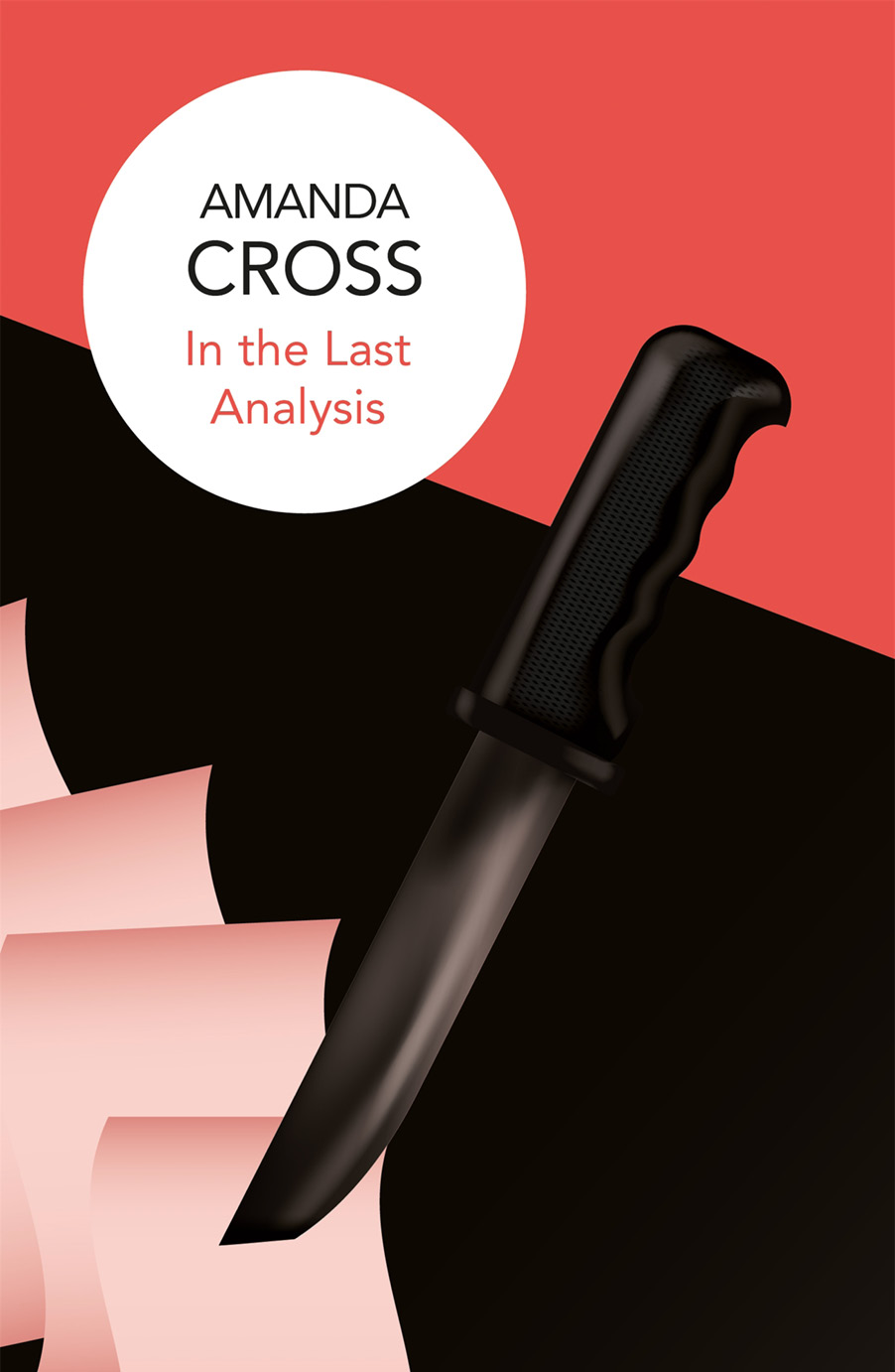ebreak
Amanda Cross
IN THE LAST ANALYSIS

ebreak
Contents
ebreak
Also by Amanda Cross
and available from Bello
In the Last Analysis
The James Joyce Murder
Poetic Justice
The Theban Mysteries
The Question of Max
No Word from Winifred
A Trap for Fools
The Players Come Again
I didnt say I objected to Freud, Kate said. I said I objected to what Joyce called freudful errorsall those nonsensical conclusions leaped to by people with no reticence and less mind.
If you are going to hold psychiatry responsible for sadistic parlor games, I see no point in continuing the discussion, Emanuel answered. But they would continue the discussion nonetheless; it had gone on for years, and showed no signs of exhausting itself.
By the way, Kate said, Ive sent you a patient. At any rate, a student asked me to recommend a psychoanalyst, and I gave her your name and address. I have no idea if shell call, but I rather expect she will. Her name is Janet Harrison. Kate walked to the window and looked out on the raw and blustery weather. It was the sort of January day when even she, who loathed spring, longed for it.
Considering your opinion of psychiatry, Nicola said, Emanuel should feel duly honored. Look honored, Emanuel! Nicola, Emanuels wife, followed these discussions rather as the spectator at a tennis match follows the ball, her head turning from one to the other. Having managed to place her faith in psychiatry without withdrawing her right to criticize, she applauded the good shots and groaned at the misses. Kate and Emanuel, charmed with Nicola as audience, enjoyed the matches not only for the occasional insights which emerged from them, but also because they shared the knack of irritating without ever offending each other. Nicola smiled on them both.
It isnt Freud himself one quarrels with, Kate said, nor even the great body of theory he evolved. Its the dissemination of his ideas in the modem world. Im always reminded of the story of the Japanese gentleman and the Trinity: Honorable Father, very good; Honorable Son, very good; but Honorable Bird I do not understand at all.
Your quotations, Emanuel said, always enliven the conversation without in any way advancing the discussion.
The only quotation I can think of, said Nicola, in her turn walking to the window, is If Winter comes, can Spring be far behind?
Which, as it turned out, was the most significant remark anybody made that afternoon.
Someone had chalked April is the cruelest month on the steps of Baldwin Hall. Kate, unimpressed by the erudition, agreed with the sentiment. Spring on an American campus, even as urban a campus as this one, inevitably drove the faculty into a mood compounded of lassitude, irritation and fastidiousness. Perhaps, Kate thought, it is because we are getting old, while the students, like Caesars crowds on the Appian Way, are always the same age. Gazing at the students who sprawled, or made love, on every available patch of grass, Kate longed, as she did each spring, for a statelier, less untidy era. The young in one anothers arms, Yeats had complained.
She mentioned this to Professor Anderson, who had stopped too, pondering the chalk inscription. This time of year, he said, I always want to shut myself up in a dark room, with the curtains drawn, and play Bach. Really, you know, he said, still regarding Eliots line, Millay put it better: To what purpose, April, do you return again? Kate was startled by Professor Anderson, who was an eighteenth century man with a strong distaste for all female writers since Jane Austen. Together they entered the building and mounted the stairs to the English department on the next floor. That was it, really. However expected, April was always startling.
On the bench outside Kates office, waiting for her office hours, sat a line of students. This too was a spring symptom. The good students either vanished from the campus altogether, or appeared at odd moments to argue some abstruse point of interpretation. The mediocre, particularly the poor ones, began to worry about marks. April, stirring their dull senses, reminded them that the time of marks was near and the B they had faithfully promised themselves dismally remote. They had come to talk it out. Kate sighed as she unlocked the door to her office, and then stopped, in surprise and annoyance. A man standing at the window turned as she entered.
Please come in. Miss Fansler. Perhaps I should say Doctor, or Professor; I am Acting Captain Stern, Detective from the Police Department. Ive shown my credentials to the secretary in the office, who suggested that I had perhaps better wait in here. She was kind enough to let me in. I havent disturbed anything. Wont you sit down?
I assure you. Captain, Kate said, sitting down at her desk, I know very little about the personal lives of my students. Has one of them got into trouble? She regarded the detective with interest. An avid reader of detective stories, she had always suspected that in real life detectives were desperately ordinary men, the sort who coped well with short-answer exams (corrected by machine) but were annoyed by complex ideas, literary or otherwise; the sort who liked the hardness of facts and found the need for ambivalence distasteful.
Would you be good enough to tell me, Miss Fansler, what you were doing yesterday morning until noon?
What I was doing? Really, Captain Stern, I do assure you that...
If you will just be good enough to answer my questions. Miss Fansler, I will explain the reasons for them very shortly. Yesterday morning?
Kate stared at him, and then shrugged. As is the unfortunate habit of the literary person, she already imagined herself retelling this extraordinary event. She caught the detectives eye, and reached for a cigarette. He lit it for her, waiting patiently. I dont teach on Tuesdays, she said. I am writing a book, and I spent all yesterday morning in the stacks of the library, looking up articles in nineteenth century periodicals. I was there until a little before one, when I went to wash, and then to meet Professor Popper for lunch. We ate in the faculty club.
Do you live alone, Miss Fansler?
Yes.
What time did you arrive in the stacks?
The stacks, Captain Stern, are the inner floors of the library, on which the books are kept, Why is it, she wondered, that women are always annoyed at being asked if they live alone? I got to the library at about nine-thirty.
Did anyone see you in the stacks?
Anyone who could give me an alibi? No. I found the volumes I wanted, and worked with them at the small tables along the wall provided for that purpose. Several people must have seen me there, but whether they recognized me, or remembered me, I couldnt say.
Do you have a student named Janet Harrison?
In books, Kate thought, detectives were always enthusiastically interested in their work, rather like knights on a quest. It had never really occurred to her before with what fervor they attacked their work. Some of the time, of course, they were related to, or in love with, the accused or murdered, but whether being a detective was their job or a vocation, they seemed vehemently to care. She wondered what, if anything, Acting Captain Stern cared about. Could she ask him if he lived alone? Certainly not. Janet Harrison? She used to be a student of mine; that is, she took one of my classes, on the nineteenth century novel. That was last semester; I havent seen her since. Kate thought longingly of Lord Peter Wimsey; at this point, surely, he would have paused to discuss the nineteenth century novel. Captain Stern seemed never to have heard of it.





